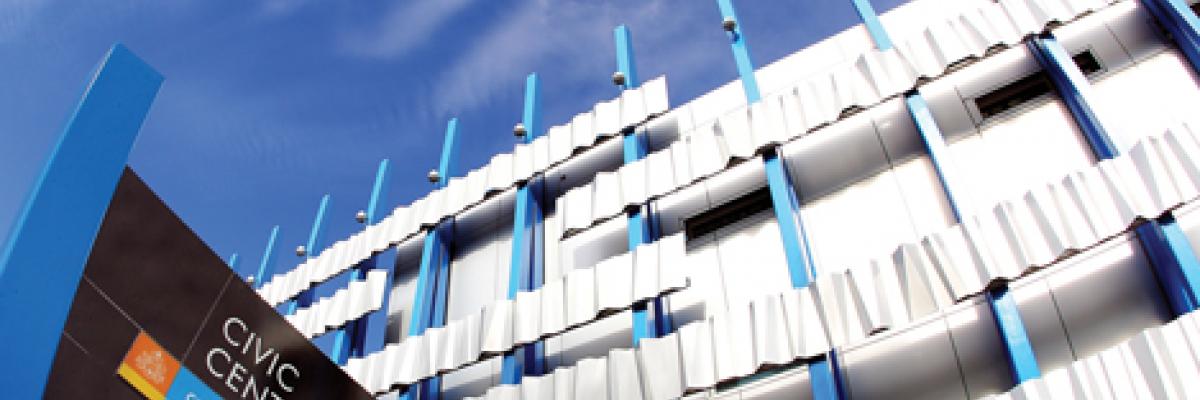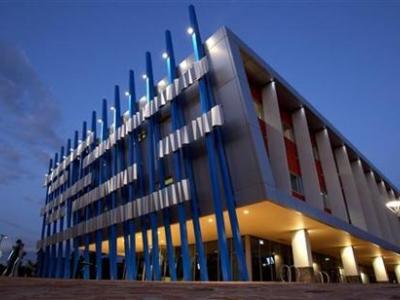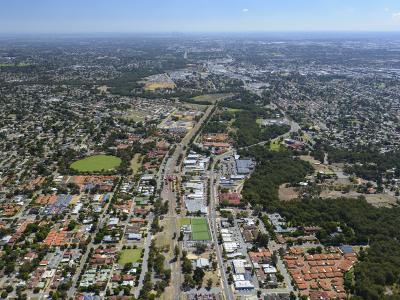Trying to understand how to become a supplier for a local government can be daunting. There are a lot of rules and regulations, and understanding why and how decisions are made is important.
The City wants to encourage potential suppliers to learn how the City’s procurement processes work, as well as support existing suppliers in maintaining their relationship with the City.
What is Procurement?
Procurement is simply the buying of products, services and works for the best value, in a way that is fair and transparent for everyone.
Western Australian local governments are required to follow specific rules in relation to procurement, these can be found in the Local Government Act 1995 and the Local Government (Functions and General) Regulations 1996. In addition, local governments are required to follow internal policies and procedures.
Councils spend money on a broad range of items including - roads, recreational and community facilities, waste collection, parks, trees, vehicles, professional services, utilities and more.
Any supplier interested in doing business with the City, should familiarise themselves with the following documents:
CP 4.1.8 Purchasing
City’s Statement of Business Ethics
Procurement Decision Making
When trying to decide how best to spend public money, the City considers a range of factors:
- Ensuring the City is compliant with all legislative obligations.
- Ensuring goods and services purchased meet the City’s needs.
- Ensuring value for money is achieved by calculating price based on total life cycle costs and other factors.
- Ensuring community expectations and values are achieved.
- Ensuring the most efficient and effective procurement process is used.
- Ensuring that procurement transactions are carried out in an accountable, fair, transparent and equitable manner.
Understanding the City's Purchasing Thresholds
The City’s Purchasing Policy details the minimum spending thresholds for staff to follow when purchasing goods or services for the City, including guidelines of how to calculate spending timeframes and how to select the appropriate threshold.
The City’s purchasing thresholds are based on the estimated purchase value, exclusive of GST, as follows:
Purchasing goods or services worth up to $10,000 - Direct sourcing
City staff are able to go directly to a supplier to purchase goods and services as long as the value for money principle is satisfied.
Purchasing goods or services worth more than $10,000 and less than $50,000
City staff must seek a minimum of two quotes from different suppliers to determine the best value option for the City.
Purchasing goods or services worth $50,000 or more and less than $250,000
City staff must seek a minimum of three quotes from suppliers to determine value the best value option for the City. Often, a more formal Request for Quote (RFQ) process is undertaken which may require suppliers to submit a methodology to complete the project works and/or provide goods or services, in addition to their quote.
Purchasing goods or services worth $250,000 or more, and Panel Arrangements
By law, when procuring goods or services valued at $250,000 or more, the City must go through a public procurement process, this includes:
- Expressions of Interest (EOI’s)
- Requests for Tender
- Requests for Quote worth $250,000 or more from
- WALGA Preferred Suppliers.
- State Government CUA’s.
- Disability Enterprises.
- Invitations to Apply to join a Panel of Pre-Qualified Suppliers
The Procurement Team manage this process on behalf of the City.
All EOI’s, Tenders and Invitations to join a Panel of Pre-Qualified Suppliers are advertised in each of the following locations:
- West Australian newspaper
- City’s website, on the YourSay public notices page
- City’s public notices Facebook group
- City’s eProcurement Portal 360, where specifications and pricing information can be found.
eProcurement Portal
The City uses an eProcurement Portal called 360. The portal allows suppliers to:
- Register for notification of procurements managed by the Contracts and Procurement team, released to the market and relevant to their company.
- Access open procurements.
- Submit an application to an open procurement.
The portal provides ‘Getting Started’ guides detailing how to register for the portal and how to select the ‘Subscription Filters' relevant for your company. Once registered, your company will automatically receive email notifications of any relevant procurement opportunities that are published.
Procurement Currently Advertised
Details of currently advertised tenders, panels and expressions of interest can be viewed on the City’s eProcurement Portal.
WALGA Preferred Suppliers
City staff can source quotations at any threshold from the Western Australia Local Government Association (WALGA) Preferred Supplier Program. Information about this program is available on the WALGA website
Any supplier interested in being part of the WALGA Preferred Supplier Program, should contact WALGA directly.
Questions and Answers
Q: Is doing business with the Council complicated?
A: The larger the value of the procurement, the more complex the process becomes. For example, supplying refreshments for a small City event may just be a matter of introducing yourself and supplying a menu. For large catering contracts worth hundreds of thousands of dollars, a tender may be required.
Q: Why do council decisions take so long?
A: The length of time taken to complete a procurement process is directly relate to number of approvals required within the City. For example, a parks officer may have sought quotations, but another officer (likely their coordinator or manager) will be required to approve the quotation. In the case of a formal quotation or tender process, a Council determination or approval by the CEO may be required, which will result in timelines being extended. However, it is important that the City takes the time to make the right decision, and to seek the necessary approvals, to ensure that value for money is achieved.
Q: Is being a local supplier an advantage?
A: The City is keen to support local businesses where possible, however, is unable to apply any local price preference to a tender or quotation processes. The City supports local businesses by encouraging staff to obtain quotations from local businesses where possible at the lower quotation levels. Local businesses are also encouraged to submit tenders for larger procurements that are within their capacity to deliver.
Q: I was told my tender did not address all the qualitative criteria. How can I improve?
A: The eProcurement portal used by the City (360) includes a question and answer section, where you are required to provide relevant information about your company. Answering each question thoroughly is recommended to obtain a good score. Your response to each question is assessed separately, so you should ensure that each response entered answers the appropriate question it is entered against. Tender evaluators base their assessment of your tender response strictly against what is written in your submission and cannot consider any personal experience with your company.
Q: The price my company offered was the cheapest. Why were we not awarded the tender?
A: A low tendered price is not the only consideration when evaluating tender submissions. Other factors affecting the total cost to the City are taken into account, including:
- lifetime operating costs or the Principal’s contract management costs;
- the technical merits of the goods or services offered in accordance with the specification and quality assurance;
- the financial viability of the supplier; and
- the capacity of the supplier to deliver.



